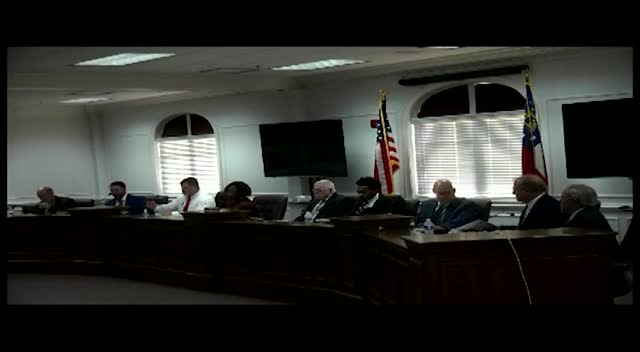Appling County schedules public hearings on House Bill 581 property tax reassessment opt‑out option
Get AI-powered insights, summaries, and transcripts
Subscribe
Summary
Commissioners set public hearings for Feb. 20 (10 a.m. and evening) and Feb. 26 (evening) to gather input before deciding whether to opt out of parts of House Bill 581; the March 1 deadline for an opt‑out referendum was cited as the driver of the timeline.
Appling County commissioners set public hearing dates and times to solicit community input on how the county should respond to House Bill 581, which includes a mandatory property reassessment schedule and an opt‑out pathway for certain provisions.
The board scheduled two hearings on Feb. 20 (one at 10 a.m. and one in the evening) and a second hearing on Feb. 26 in the evening. The county manager said the hearings satisfy the advertisement and public meeting requirements ahead of the March 1 deadline for an opt‑out decision.
Why it matters: House Bill 581 includes reassessment rules and a local opt‑out mechanism; the county must hold public hearings and then take a formal action (a resolution) to opt out if commissioners decide that is their preference.
County staff described the bill as requiring reassessment every three years and said the county cannot opt out of the reassessment requirement itself but can choose whether to opt into or out of related provisions. "You cannot opt out from the reassessment that will have to take place ... but in order to even have a choice we have to ... hold 3 public hearings before the March 1 deadline," the county manager said.
Staff recommended scheduling the hearings to allow residents and the assessor's office to present information and public comment. Commissioners discussed times that would allow attendance; the final schedule approved on the record was Feb. 20 at 10 a.m. and 6 p.m., and Feb. 26 at 5:30 p.m. (the board discussed minor adjustments to the evening times during the meeting and recorded the schedule as approved).
The county manager said the assessor is conducting field assessments this year and that reassessment work is expected to be completed by the end of the calendar year.
Next steps: The board approved placing the hearings on the schedule and directed staff to advertise the meetings and gather materials from the tax assessor and other neighboring jurisdictions to inform the discussion. After the hearings, the board will hold a separate meeting to decide whether to adopt a resolution to opt out or remain subject to the bill's default provisions.
